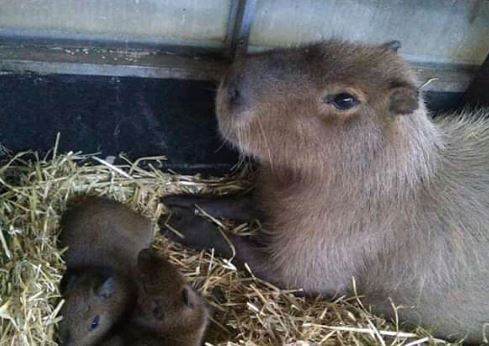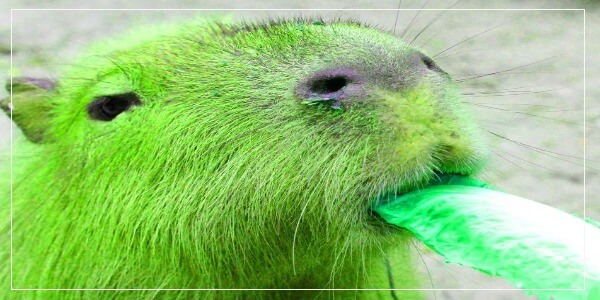Signs Of Grieving Capybaras
When a capybara is in grief, it will show signs of sadness and sadness. These signs are very similar to the grief that humans experience when someone dies.
- The Capybara stops eating for a long period of time.
- The Capybara shows less interest in socializing with its family members.
- The Capybara refuses to drink water or eat food from anyone but its owner.
- The Capybara hides under furniture or behind doors or walls for hours at a time without moving from its hiding spot.
- The Capybara cries all day long without any sign of stopping.
Grieving Capybaras are a common sight at the local zoo. The reasons for grief range from depression to illness to death.
Grief in Capybaras is often associated with depression, but it can also be caused by grief at the loss of a mate or being separated from their young.
Recall, that capybaras are social animals and they live in groups, so when one of their own falls ill or dies, it can be very upsetting for them.
When a Capybara is grieving for a loved one, they may show signs of sadness, depression, or anxiety. It’s not uncommon for them to cry when they’re alone or when no one else is watching.
Their behavior can change for the worse if the members of their group are sick or dying as well. This can make it difficult for other animals to make friends with them if they become too aggressive due to grief.
Things That Causes Grief In Capybaras
Grief is a natural response to loss, and it can occur at any time in the life of an animal. Grief is a complex emotion that includes sadness, guilt and fear of future loss. While there are many different ways that animals grieve, humans are not the only ones who feel this way.
1. Loss of a loved one – This is the most common reason why capybaras grieve. When they lose a loved one, they will show it in their eyes and body language. It can be a pet or an owner, but in any case, if you notice your capybara acting depressed, try to take them for a walk to let them enjoy the fresh air and get some exercise.
2. Change in environment – Another reason for capybara grief is when they are moved to another place or taken to a new home with people who don’t know them well yet. This can also happen during pregnancy when they need to stay close to their mom so that they can get enough nutrition from her milk and pass it on to their baby.
3. Separation from other animals – If you have more than one capybara at home, then this could be the reason why your pet is acting depressed and lonely all the time! Always make sure that your pets have plenty of interaction with other animals like dogs or cats so that they can get used to them before putting them into the same room with another animal (e.g., dog).
4. Overcrowding in Small Spaces – Capybaras are social animals who need space to live comfortably and happily in their homes; otherwise, they can become aggressive when forced into small spaces where there is only one large object such as a couch or bed that takes up much space.
5. Being attacked or harassed by other animals.
How Long Does Grieving Last for a Capybara?
The grieving process for a capybara can be different from that of a dog or cat. The symptoms of grief in animals are often similar to those in humans, although the timing and severity are different.
The first stage of grief is denial and isolation. The capybara may become quiet and withdrawn or may refuse food or water. During this time, they will move around less than usual, often sleeping in the same place they always do. They may also have trouble eating because they don’t want to risk causing any more pain by chewing on an already painful area of their body.
The first few days are the most difficult, and there may be some depression after the initial shock wears off. There are no set time periods for grieving a loss, but it usually lasts about three weeks, though it can last longer or shorter depending on the individual.
Caring for a Grieving Capybara in 5 Steps
When your capybara is grieving, you can help by taking these steps:
1. Be patient.
2. Don’t force him to eat.
3. Let him sleep a lot and take short naps with him in the sunroom or on the couch.
4. Don’t make physical contact with your capybara during this period of grief, as it may upset him further and prolong his mourning period even further. Also, don’t try to hug or play with him if he does not want to be touched, as this could backfire and make things worse for both of you!
5. When your capybara is ready to start eating again, try some treats that he loves as a reward for getting through the grieving phase of his life, such as bacon bits or cheese cubes (you can use one of these treats only when he has gotten used to eating).
Toys for Grieving Capybaras
Grieving capybaras are a lot like grieving humans, except with extra ears and a few other differences. If you want your capybara to be happy again, here are some toys that might help.
Capybaras can be very adorable, but they also cry a lot. They’re not as emotional as dogs or cats, but they still get sad when in pain or depressed.
Capybaras will love playing with these toys:
A rubber ball can be thrown around the house or in the yard, but it’s important not to let them hit other animals or people with it. The noise would scare them too much and make them think something bad is happening.
A small stuffed animal can be given for comfort instead of a toy that can hurt someone else or get lost easily (because it’s so small). It doesn’t have to be big either! If your capybara likes to chew on things, give him something small like a toy mouse or duckling instead of an expensive plush one from the pet store.
Conclusion
All pets deserve respect, especially those who didn’t ask to be brought into this world. These poor capybaras don’t ask for anything, so we hope sharing their story will help educate more pet owners about the dangers of climate change on animals and the importance of conservation efforts to protect them.

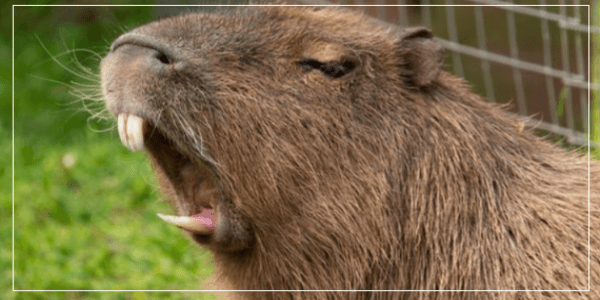
![Capybara Meat And Its Culinary Uses - [Every You Should Know] Capybara Meat & Culinary Uses](https://capybaratips.com/wp-content/uploads/2023/03/Capybara-meat-250x200.webp)
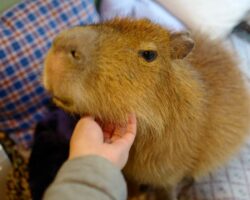
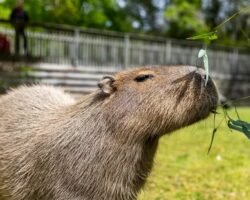

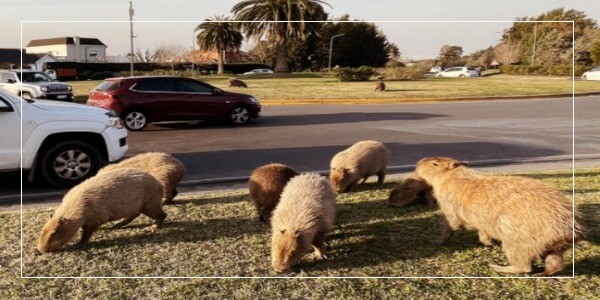
![How To Get a Pet Capybara Uk [Step By Step] How To Get a Pet Capybara Uk](https://capybaratips.com/wp-content/uploads/2023/03/Uk-Capybara-250x200.webp)
